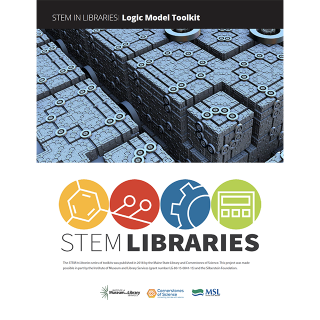
The STEM in Libraries: Logic Model Toolkit provides resources to help you understand the purpose of logic models and the benefits of using them for program and evaluation planning. You will learn to: identify the key elements of logic models, develop your own logic models and learn how you can use logic models to improve your STEM program and evaluation design.
Mar 18, 2019 •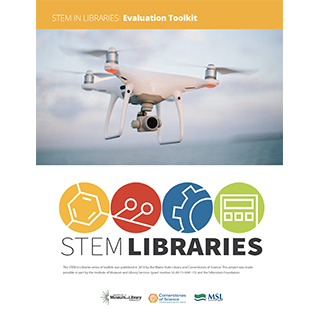
Libraries and other public agencies and nonprofits are under increasing pressure to report on outcomes—not just how many people they serve, but what difference their activities and services are making for participants. Evaluation can help you answer questions about impact and much more: evaluation is the use of data to assess impact (“to make judgments”), but also to improve program effectiveness and make decisions about where to focus your efforts going forward.
Feb 1, 2019 •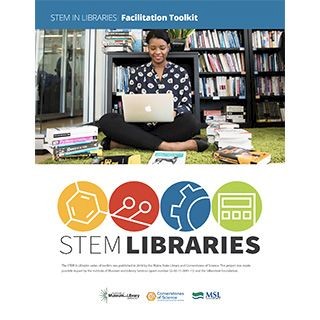
The STEM in Libraries: Facilitation Toolkit provides resources to help you understand the concept of free-choice learning,recognize the librarian’s role, plan purposefully,identify different approaches to STEM programing, and learn from the experiences and best practices of libraries that have already developed STEM programs for their communities.
Jan 23, 2019 •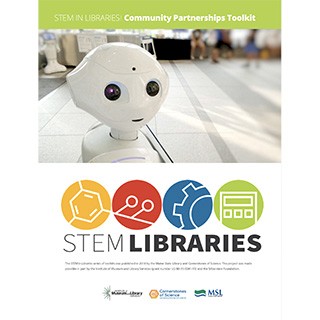
The STEM in Libraries: Community Partnerships Toolkit provides resources to help you expand your library’s capacity by partnering with other organizations to offer high-quality, relevant science, technology, engineering, and math (STEM) programs. Learn to identify and approach partners who can help you address the STEM issues of importance to your community.
Dec 14, 2018 •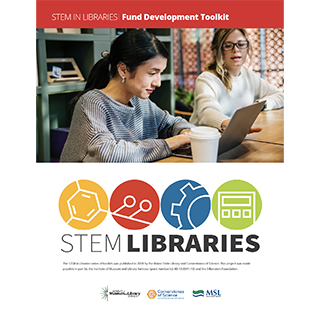
The STEM in Libraries: Fund Development Toolkit provides resources to help you understand potential funding sources for science, technology, engineering, and math (STEM) programs, and identify these sources in your community. You’ll learn how to apply best practices in your STEM fundraising.and how to successfully secure funds for STEM programs.
Dec 14, 2018 •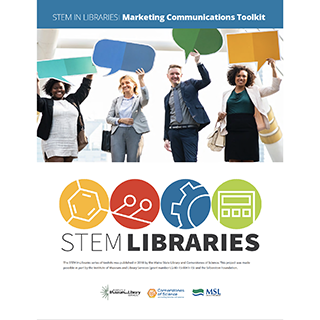
The STEM in Libraries: Marketing Communications Toolkit provides resources to help you position your library as a learning center for science, technology, engineering and math (STEM ) and promote STEM programs in your library. Includes: 10 Tips for Better Marketing Communications and STEM messaging guide.
Dec 11, 2018 •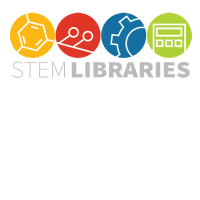
Libraries large and small are becoming essential hubs of STEM education for people of all ages. Through free access to the internet, computers, tablets, books, DVDs, workshops and programming, libraries remove barriers to STEM literacy and inquiry. These services are especially vital for children and youth whose families might not have the means for extracurricular STEM enrichment opportunities.

© STEMLibraries.org • Get in touch: stemlibraries@gmail.com